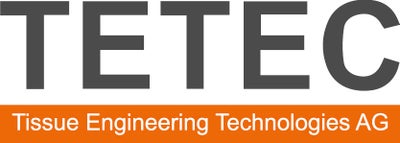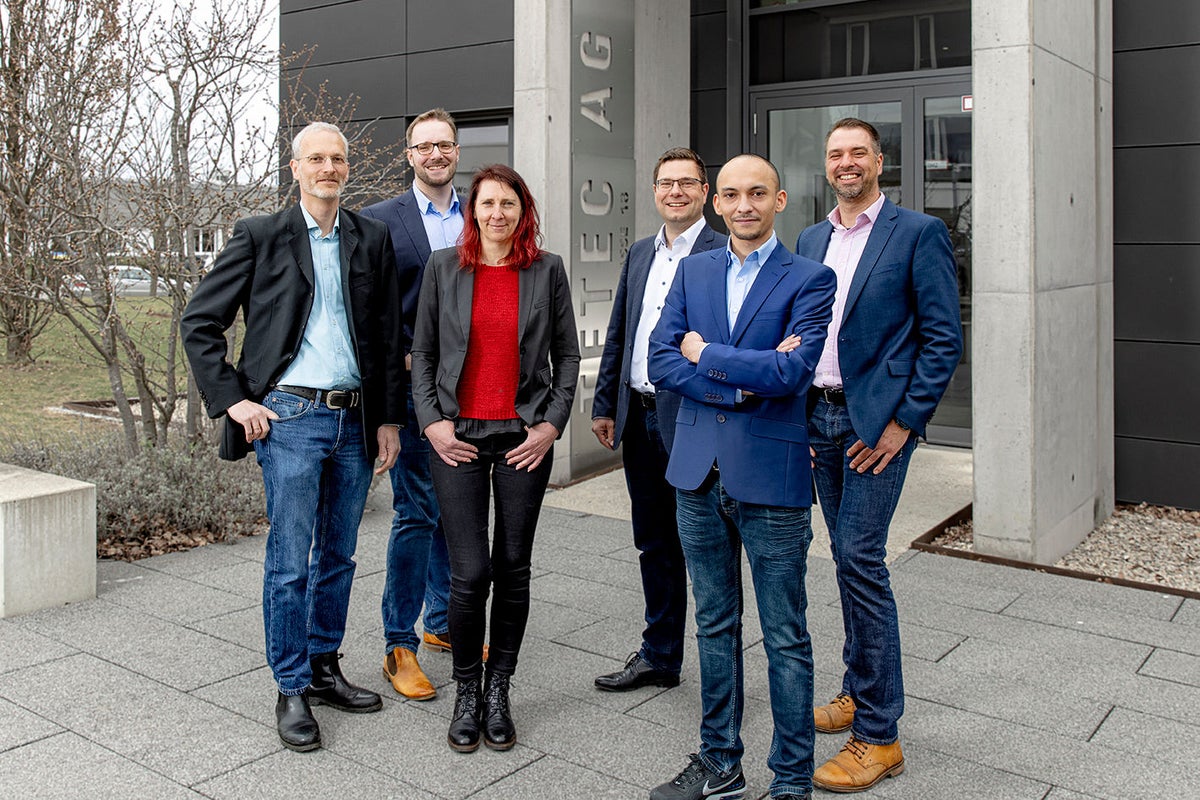OUR PRODUCTS
Therapy options for cartilage regeneration
Smart biomaterials
Our biological cartilage reconstruction innovations focus on matrix-associated autologous chondrocyte implantation (M-ACI). ACI has been recommended by the German Society for Orthopaedics and Trauma Surgery (DGOU) as a standard treatment for cartilage defects since 2004. The 2022 recommendations[1] refer to treatments of small defects starting from a size of 2 cm2. M-ACI can be divided into three main steps:
- Biopsy of autologous (the body’s own) cartilage tissue.
- Isolation, cultivation and quality inspection of the cartilage cells and subsequent insertion into a graft matrix.
- Implantation of the individually manufactured cell graft.
Matrix-associated chondrocyte implantation
Around 20 years ago, we launched a matrix-associated chondrocyte product onto the German market: a biphasic three-dimensional matrix measuring approx. 11cm2. It acts as a carrier medium and supports cartilage-specific cell properties.
Our product for matrix-associated chondrocyte transplantation is particularly suitable for osteochondral defects (defects affecting the joint cartilage and the underlying bone) and for defects in the patella.
The 4th Generation: Gel-based matrix-associated chondrocyte implantation
Our experience and pioneering achievements in field of matrix-supported ACIs form the basis for the further optimisation of cartilage regeneration using smart biomaterials. The result: a gel-based cartilage cell product that sets new standards in the field of biological cartilage regeneration.
The combination of autologous cartilage cells and a special absorbable hydrogel forms a gel-based matrix-associated chondrocyte product. The gel is actually only formed in situ (in the body), which prevents cartilage cells from leaking out of the defect.
- The hydrogel has several properties that promote regeneration.
- Self-adhesive hydrogel.
- Forms a barrier for inflammatory cells due to its physical properties.
- Inhibits unwanted vascularisation and thus protects the cartilage able to bind a lot of water.
- Fixes the cartilage cells in the defect area.
- High cell survival rate thanks to environmental conditioning.
Marketing authorisation
All our products can be sold in Germany and also be invoiced as inpatient services.
Our products for M-ACI procedures are classed as ATMPs (advanced therapy medicinal products), which have been subject to a central authorisation requirement at the EU level since 2012. The efficacy and safety of these medicinal products has been demonstrated, including in randomised studies. We are currently collecting data from studies and summarising them for the application for European approval.
Contact our sales and customer service
Our trained employees are pleased to support and advise you and your team. We are here for you if you have any questions about our products and services.
| Glossar | Explanation | Abbreviation |
| ACI | Autologous chondrocyte implantation, also known as autologous chondrocyte implantation or autologous cartilage cell implantation. This procedure is used to treat cartilage damage. Autologous cartilage cells are collected, cultured in a nutrient solution and inserted into the patient’s cartilage defect in order to reduce the discomfort caused by the cartilage damage and prevent the development of osteoarthrosis. | ACI |
| Matrix-associated ACI | Also commonly referred to as: matrix-coupled, matrix-supported or matrix-induced autologous chondrocyte implantation (M-ACI). In the M-ACI procedure, the cultivated autologous cartilage cells are implanted into the defective cartilage area using a carrier medium, such as a collagen matrix or a hydrogel. | MACI ACI-M |
| Autologous | From the same body | |
| Chondrozyten | Cartilage cells | |
| in-situ | Retention (of implanted cells) in the desired position in the body |
[1] https://pubmed.ncbi.nlm.nih.gov/35189656


